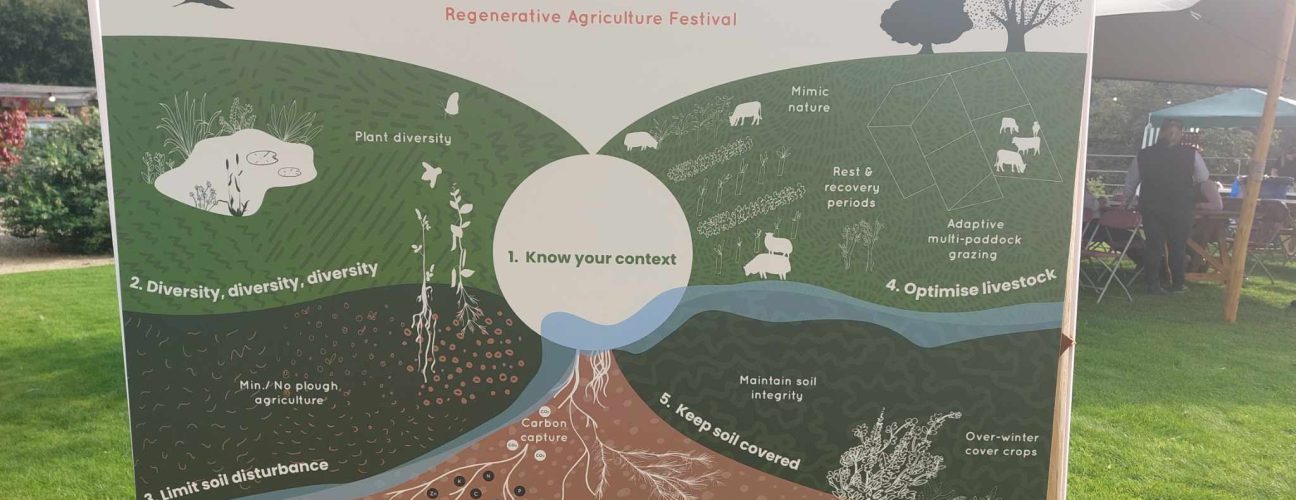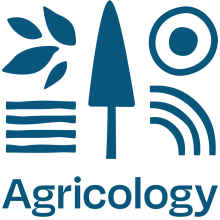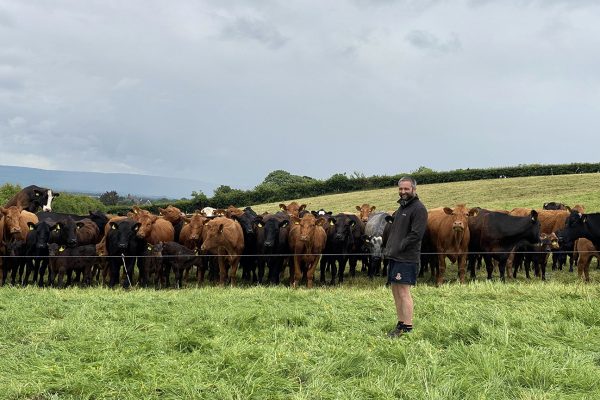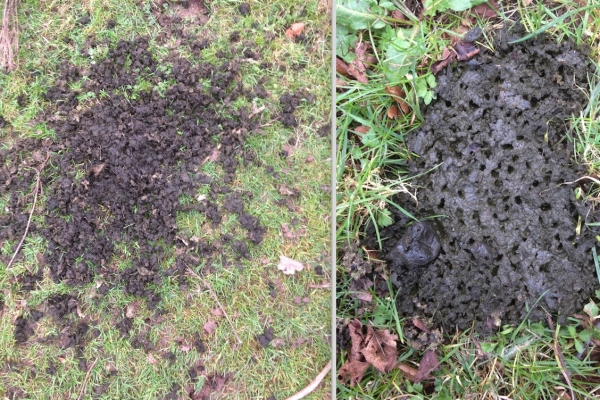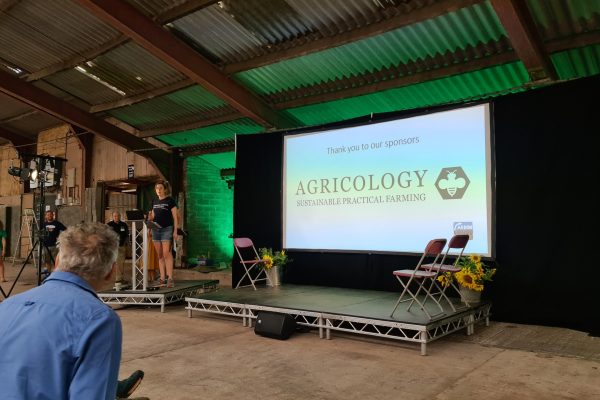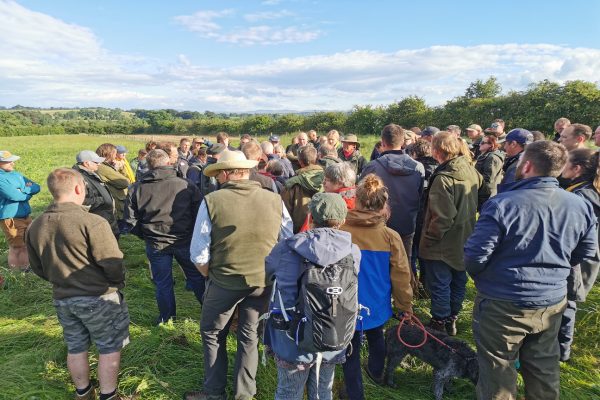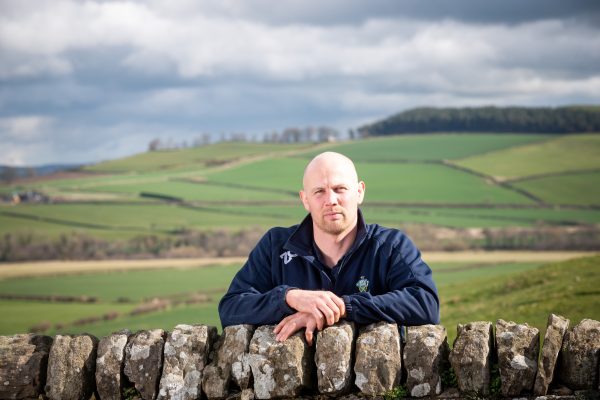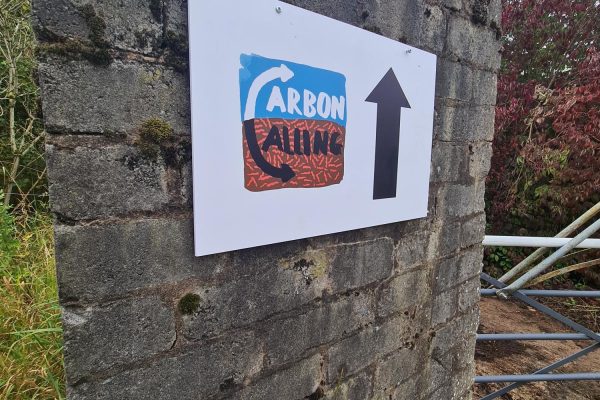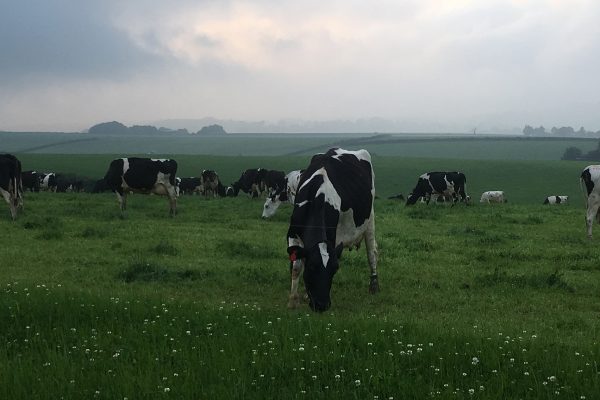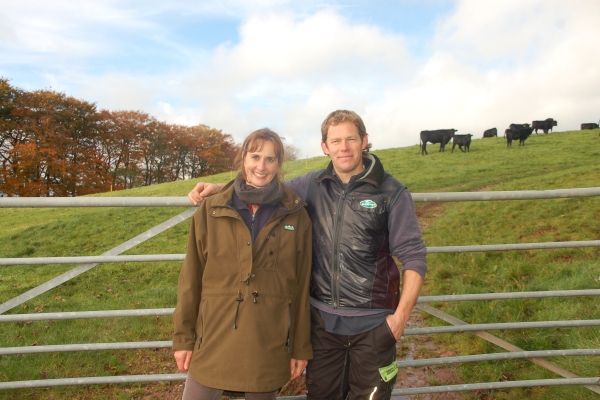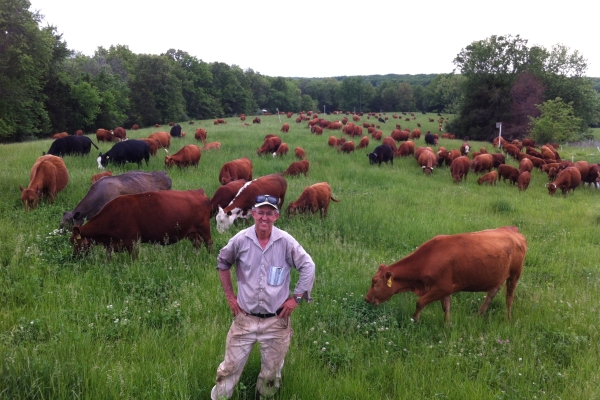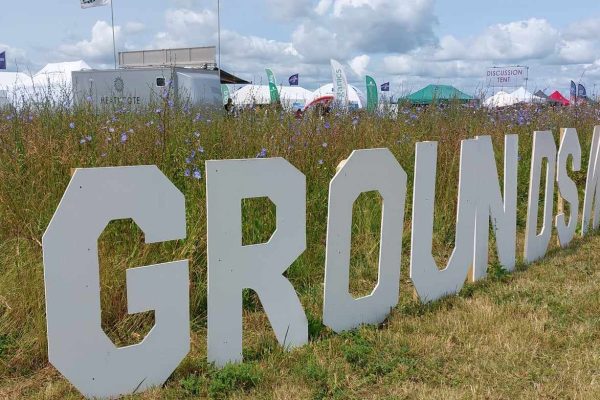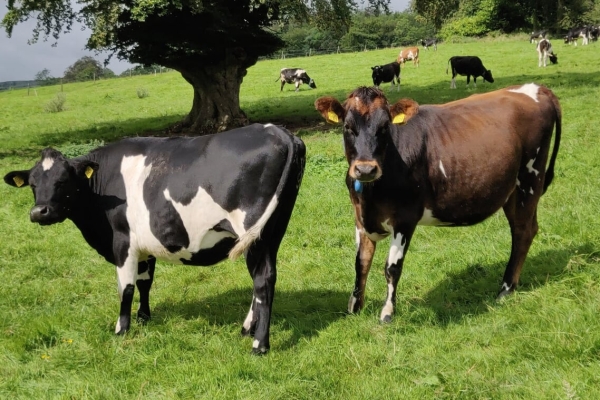The Sun Smiled on Fields Good
Agricology were thrilled to take part in Northern Ireland’s first regenerative agriculture festival, which took place at the Sheddings, a beautiful venue that forms part of the Glenarm Estate in County Antrim, an area that seems blessed with varied landscape, geological wonders, a patchwork of farmland, and amazing coastline. Matt Smee and I set up camp in the Trade Tent and met many interesting and interested folk, along with hearing some inspiring talks. It’s our aim that Agricology will have more of a presence in Ireland, so to start to be able to dial in with a new network of like-minded farmers and growers is very exciting.

The festival included three ‘talk zones’ with a packed programme people could choose from throughout the day, along with various exhibitors and other activities with talks, walks, and opportunities to explore and find out more i.e. soil inspection pit, soil health sessions and demos, agroforestry consultations and plant displays. One of the headline speakers was US regenerative Missouri rancher and author Greg Judy (who headlined at Carbon Calling a couple of years ago). A lady who visited our stand (who had a small herd of beef cattle) told me her sole reason for coming to the festival (from County Armagh) was to see Greg Judy, having watched a video of him speaking. An obvious source of inspiration and intrigue for many of the farmers there, he drew in the crowds with his observations of animals and their grazing habits, and insistence on the importance of keeping animals moving.
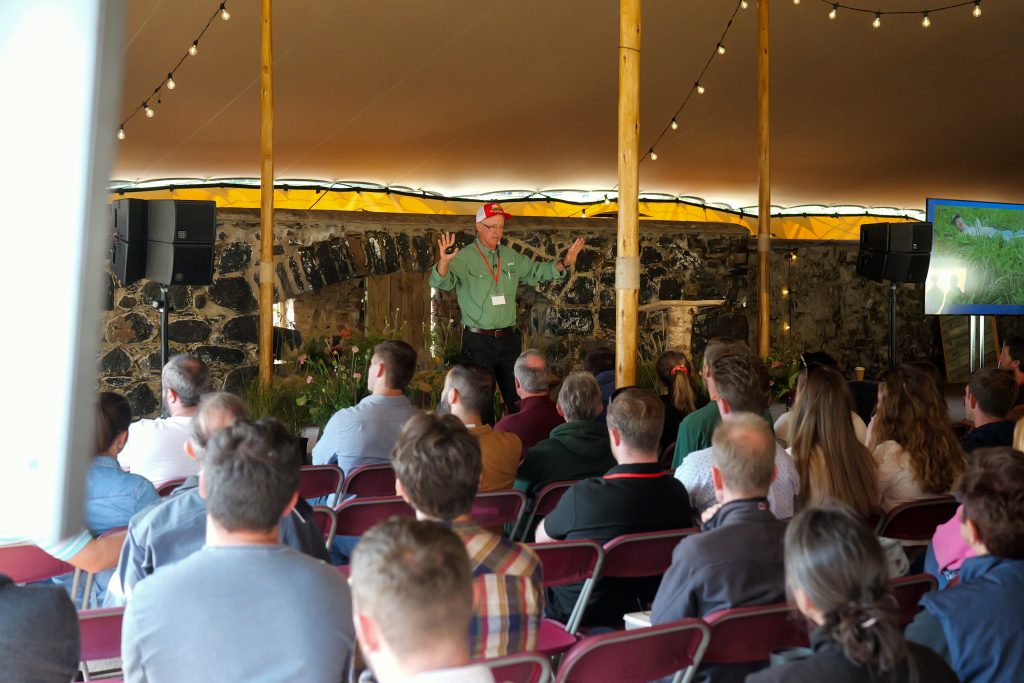
He is a great advocate for the cow being used to regenerate the soil, which in itself is quite something when you consider that it wasn’t long ago that it was cows that were attributed to turning the American West into a desert because of overgrazing. Amongst many other things, he emphasised the need to provide “homes” for other species on your farm, outlining the inter-connectedness of the larger web of plants and animals, and insisted that animal performance should be number one priority, saying “Before you can save the world you’ve got to save yourself.” He talked about some of the ways of doing this i.e. breed selection, intensive grazing management, integrating herds…
It’s all in the dung
The always entertaining and hugely knowledgeable dairy farmer Bruce Thompson, a man of many hats, literally (!) was there talking about his pals the dung beetles, from a scholarly, ecological, veterinary, farmer and firefighter’s (!) point of view. He opened by inviting everyone in the tent to “take a stool.” With his scholar’s hat on, he talked about his Nuffield; where he explored whether anthelmintic resistance mitigation measures could benefit the environment through employing grazing strategies and dung beetles.
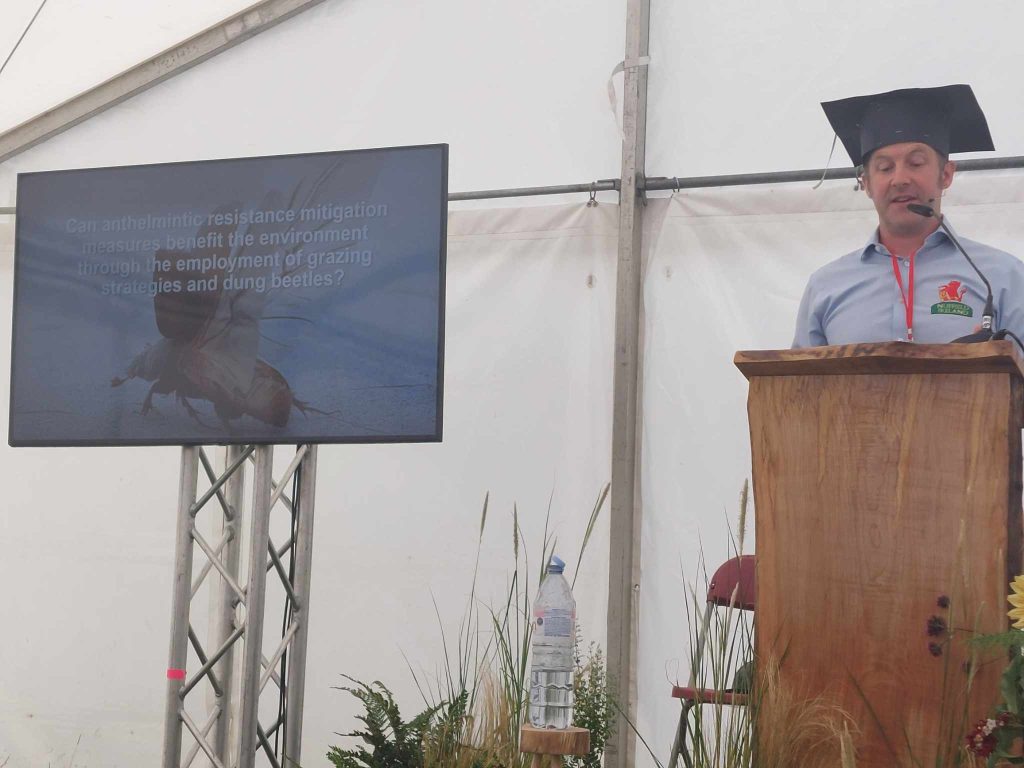
He talked about the different stages of parasite control and the larvae cycle, focusing particularly on the first stage (where 90% of parasites can be found), and how this process can be interrupted. Grazing management has a big impact on parasites.
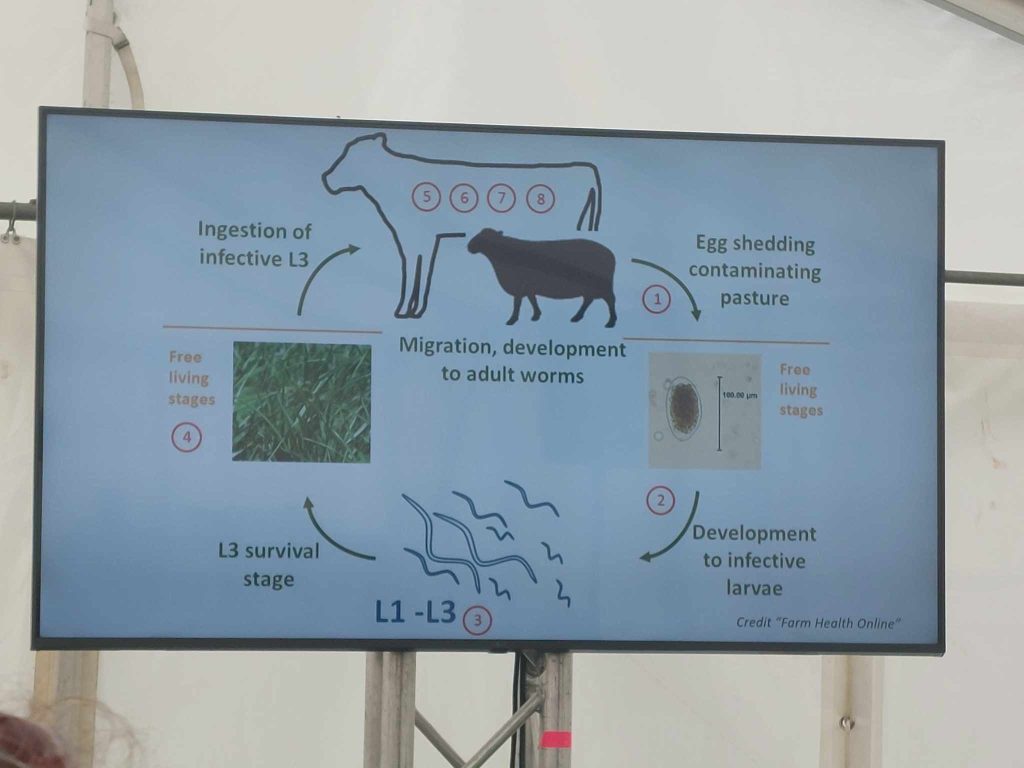
As Mr Ecology, he delved into dung pats, which can provide plenty of insects, nematodes etc. that all have an important role to play in breaking down the pat, a food source for grass and herbage, and great for feeding the soil. He spoke about the many benefits to the farmer and to the environment of encouraging dung beetles; including reduced risk of nutrient run-off to waterways, providing an important food source for predators, parasite and fly reductions, and better nutrient recycling… He highlighted that dung beetles are at the bottom of the food chain so they are an important food source for birds, bats, badgers and foxes essentially “turning a waste product into an ecological service.” One note of interest was that holes in dung pats are not, as many people believe, caused from dung beetles burying, but rather by birds such as starlings picking the larvae out of the pats.
On with the farmer’s hat, and he explained how they have looked at ‘adaptive immunity’ on his home farm in Ballyfin County Laois. The short leafy grass and damp climate provides a perfect haven for parasites, so it has been important to try to interrupt their cycle. They have been doing this by rotating cows around the farm with the help of a “traffic light grazing system” which maps the risks on the farm in terms of red, yellow and green… it helps identify where the parasites and the most susceptible animals might be, and has resulted in them reducing the amount of worming they need to do, which in turn has increased the animals’ performance.
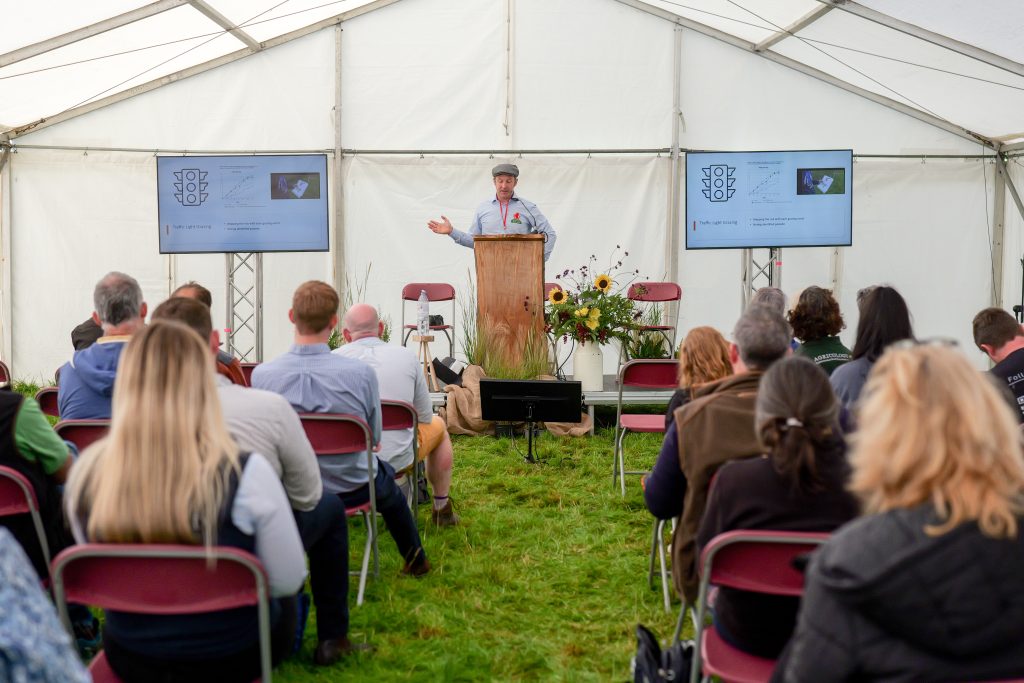
He has found that animals on a continual worming and grazing strategy don’t perform as well as animals put on grazing low risk pasture and a no worming strategy. Importantly, there was better performance to be had by managing the grassland rather than the parasites in the animals. The height of grazing grass impacts significantly on parasite management, with the majority of parasites typically found in the bottom 5-6 cm of herbage. Bruce explained that he therefore doesn’t let young stock graze too low, trying to avoid a spring rise of infected larvae being ingested by young stock. With his vet hat on, he focused on this need to balance exposure with immunity in cows, particularly calves who are most at risk as “parasite factories.” Finally, as Mr Firefighter, he spoke about the importance of doing faecal egg counting at the right time (when you need to worm the cattle) and on the right animals (not all need to be done), in order to avoid killing valuable insects in the dung pats.
Farming deeper if cheaper
One of the Fields Good organisers Bronagh O’Kane spoke with farmer Jonny Blair in a closing talk entitled ‘Farming Deeper is Cheaper.’ How? By making soils more resilient… Jonny Blair (pictured below) farms 600 ft above sea level with his father on the outskirts of Ballykelly. Having moved away from arable to focus on a suckler beef system with adaptive grazing (longer rotation and higher density system), he has seen huge improvements in soil and animal health, with minimal inputs. Jonny referred to the farming community being challenged from every angle as to “what and how we’re doing things” and described why they farm using regenerative agriculture principles; to reduce risk (he cited this as being the number one reason), because there are few answers coming from conventional systems to help deal with the many challenges, there is a lot of biodiversity loss, and profitability in conventional systems is poor.
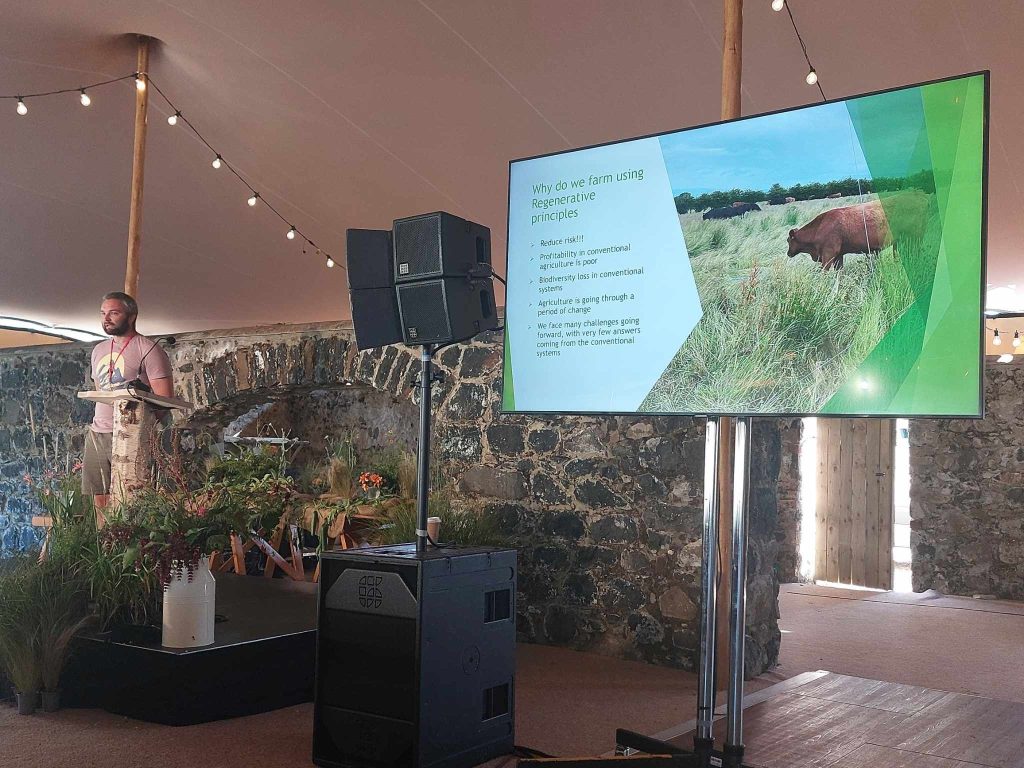
He emphasised the importance of carrying out on-farm trials, of breeding animals suitable to your farming system, and spoke about the need to integrate trees on farms to “enhance farm performance, not dilute it”, not least because of the ability of trees to improve soil function. He pointed out that Ireland used to be mostly covered in trees a few centuries ago and is now one of the least forested countries in Europe, which has taken a big toll on the soil. “Trees are not a waste of good land!” he exclaimed… “If you ignore what natures systems has in place it’s to your own peril, and at the risk of your own farm production.”
Having only taken on the family farm for a relatively short amount of time, Bronagh O’Kane’s enthusiasm and passion was truly inspiring. She described how she came back over to Ireland and into farming in 2020, taking on the family farm, after previously living in Scotland for some time and working for the RAF. She has transitioned the mixed farming system to more traditional breeds managed on herbal leys and diverse grasslands, using a rotational paddock system with extended grazing periods which allows for more resilient soils. She also talked about producing vermicast and composting to improve soil biology.
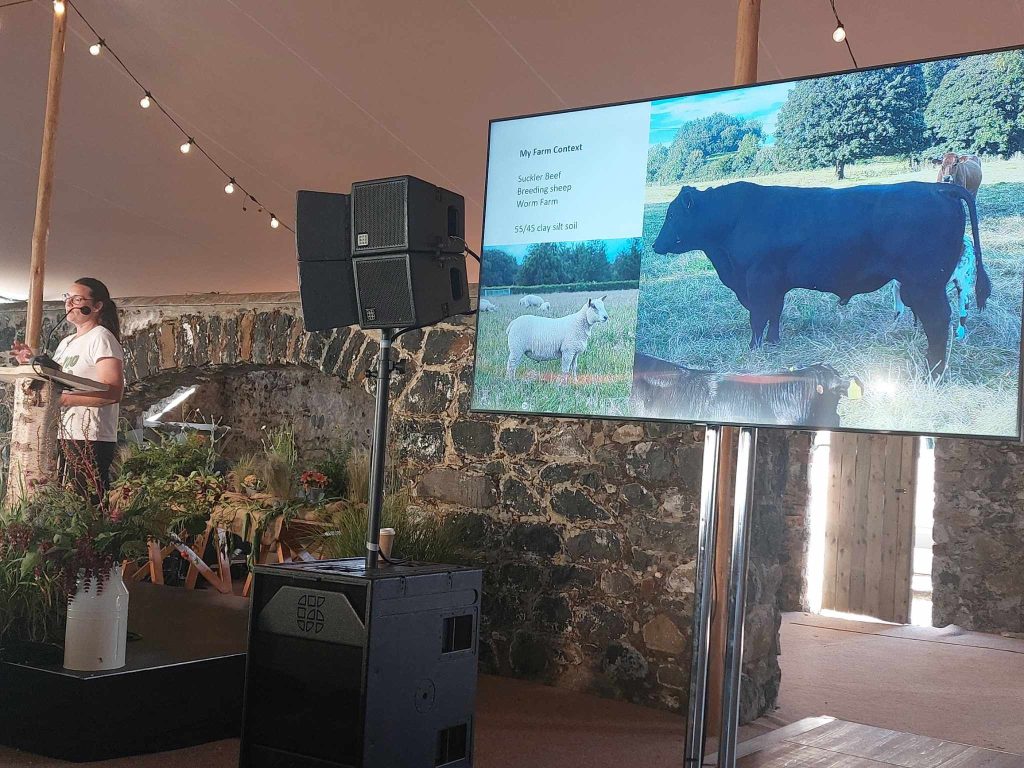
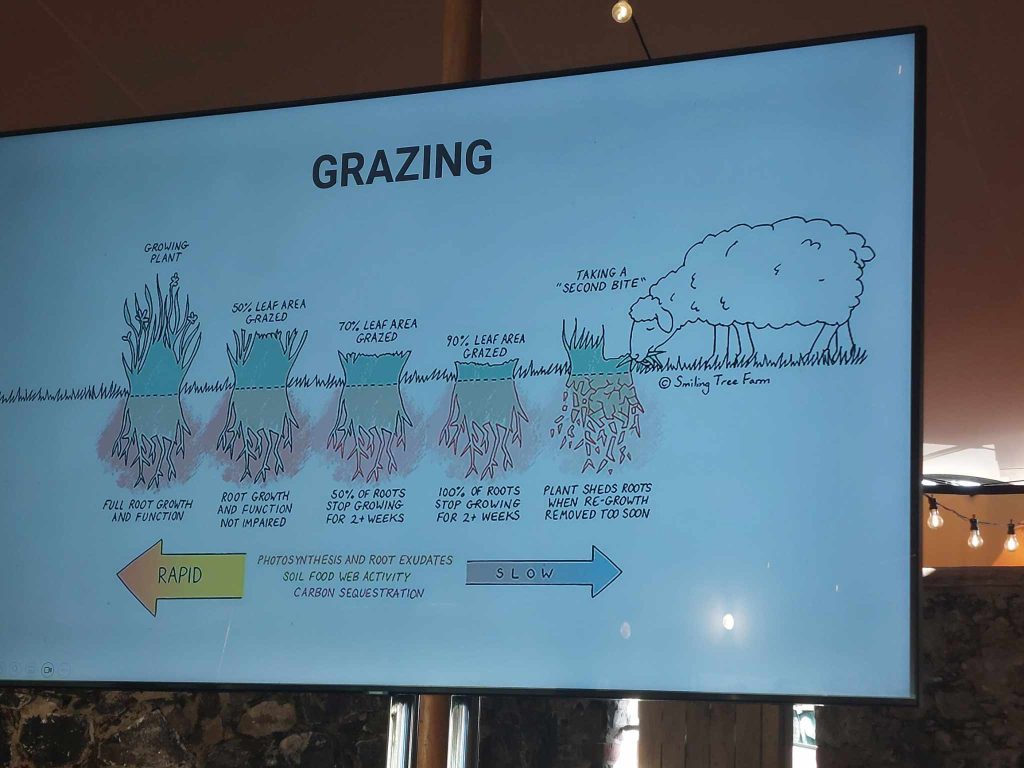
Growing the network of agroecological and regenerative farmers
I caught up with Bronagh briefly towards the end of the day, when she told me that someone had commented on the amazing weather that day being nature’s way of endorsing the festival – a lovely analogy, and I’m sure it is the start of sunnier times ahead in the regenerative agriculture movement in Ireland. Bronagh, Claire Saunders and Will Frazer clearly want to use Fields Good as a platform to grow the network of agroecological and regenerative farmers in Ireland, which is something we look forward to being part of.
I’ll finish with a few words from Matt, which sums up the experience nicely … “It was fantastic to be part of Fields Good and to see the team deliver such a successful event… It was a particular highlight to see Greg Judy speak to a packed-out room and hear him impart some great words of wisdom. One of my favourite lines of his was that “rest is one of the most underutilised tools in a graziers tool box.” I’m excited to see how we can work within our existing networks and new ones established during the event to bring more content on to Agricology for farmers in Ireland and hopefully to find ourselves back there soon to carry out some work face to face with farmer groups, clusters and new friends.”
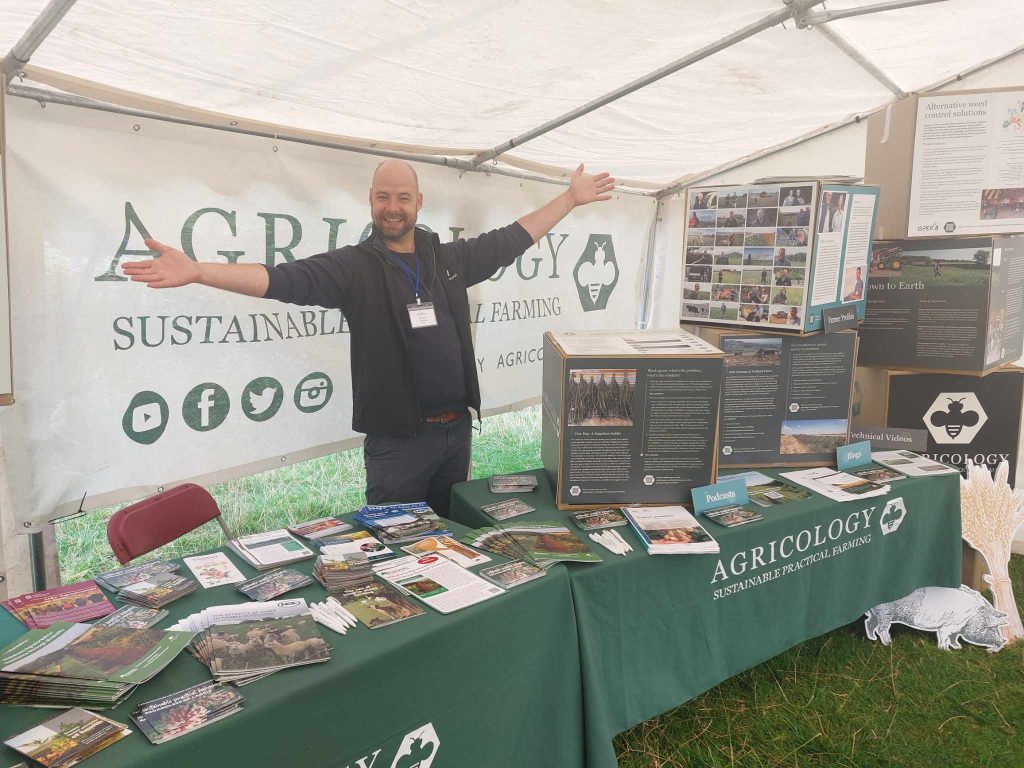
All photos taken by Janie Caldbeck except where specified
